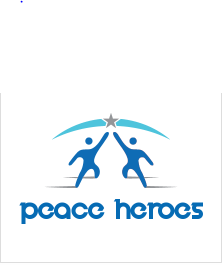The concept of peace is a cornerstone of the Bahá’í Faith, revered as not merely the absence of conflict, but as a profound spiritual and societal ideal. Central to this ethos are remarkable figures, referred to as the Great Heroes of Peace, who catalyze transformative change through their exemplary actions and teachings. This article delves deeply into the Bahá’í teachings about these luminaries, elucidating how their lives and principles promise a shift in the human perspective on peace and inspire a collective journey towards a harmonious existence.
To comprehend the significance of these heroes, one must first appreciate the broader Bahá’í context. The teachings of Bahá’u’lláh encompass a global vision, advocating for unity and the eradication of prejudice. This vision permeates the ethos of the Great Heroes of Peace, who exemplify the values of love, service, and sacrifice. Their narratives are not only historical accounts; they resonate through the ages, providing profound insights into fostering peace in a tumultuous world.
Among these paragons are figures like Martin Luther King Jr., Mahatma Gandhi, and more recently, Malala Yousafzai. Each hero embodies unique principles but collectively they manifest the spirit of peacemaking. Mahatma Gandhi’s philosophy of nonviolent resistance illustrates a powerful modality for combating injustice, advocating that “nonviolence is a weapon of the strong.” His teachings underscore the Bahá’í belief in the efficacy of love and kindness over animosity and oppression. Such perspectives invite a robust re-evaluation of traditional conflict-resolution strategies.
Similarly, Martin Luther King Jr.’s dedication to civil rights emphasizes the importance of justice as a precursor to enduring peace. His dream of a society where individuals are judged by the content of their character rather than the color of their skin aligns with the Bahá’í advocacy for racial harmony and equality. His powerful rhetoric and unwavering commitment to nonviolence invite individuals worldwide to challenge societal norms that sustain inequality. This remarkable shift in perspective is essential for fostering an environment where genuine respect and unity flourish.
Malala Yousafzai, a contemporary figure, exemplifies the intersection of education and peace. Her advocacy for girls’ education in the face of extremism underscores the transformative power of knowledge. In her eloquent speeches, she articulates that educating a girl is akin to educating an entire community. This principle resonates profoundly with Bahá’í teachings, which emphasize the pivotal role of education in achieving world peace. Such heroes not only challenge the status quo; they inspire an entire generation to reconceptualize their roles as agents of change.
In learning from these Great Heroes of Peace, there emerges an intrinsic understanding of the principles of tolerance and forgiveness. The Bahá’í Faith posits that true peace is achieved through the cultivation of love, empathy, and understanding among diverse communities. Conflict arises not solely from external circumstances but often from internal discord and misunderstanding. Hence, the teachings encourage individuals to engage in open dialogues, fostering an environment where differences are not merely tolerated but honored as essential components of humanity.
The complexity of societal issues requires an innovative and collaborative approach. Hence, Bahá’í teachings advocate the importance of consulting in the pursuit of peace. This method of collective decision-making underscores that each voice matters, and diverse perspectives enhance the richness of dialogue. Prominent figures like Abdu’l-Bahá emphasized the significance of this approach, suggesting that harmony cannot thrive in isolation but through inclusive participation and cooperation.
Moreover, the heroes of peace challenge us to perceive adversity in a new light. They teach that obstacles can be transformed into opportunities for growth. This notion extends to political and social adversities, prompting individuals to look beyond mere survival to develop resilience and creative solutions. The Bahá’í teachings on ‘the oneness of humanity’ further reinforce this ideology, celebrating that unity is not merely aspirational but a tangible aspiration that requires collective endeavor and action.
As we delve deeper into the teachings encapsulated by these Great Heroes of Peace, it is crucial to engage with the practical applications of their philosophies in contemporary society. The challenge of global conflicts, climate change, and social inequalities necessitates a renewed dedication to the principles of love, justice, and service. Initiatives grounded in these values can transform communities, creating ripples of peace that extend beyond borders.
Furthermore, promoting interfaith dialogue emerges as an essential component of nurturing peace. The Bahá’í Faith advocates for the recognition of the validity of different religious traditions, encouraging mutual respect among diverse faith communities. This approach fosters an understanding that enhances collaboration rather than contention, ultimately contributing to a more peaceful coexistence.
In conclusion, the Great Heroes of Peace as illuminated by Bahá’í teachings serve as beacons of hope and affirmation for individuals and communities alike. Their lives exemplify the potential inherent in every human being to effectuate positive change. By embracing their principles, the world can embark on a transformative journey toward attaining true peace, driven not merely by aspirations but by intentional actions rooted in love and understanding. Such a shift in perspective invites curiosity, urging us to continually seek knowledge, engage in dialogue, and collectively work towards a harmonious global society.
